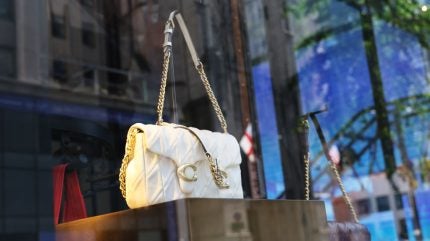
In response to the US District Court’s approval of the Federal Trade Commission’s (FTC) preliminary injunction against its acquisition of Capri Holdings, Tapestry expressed disappointment, calling the decision “incorrect on the law and the facts.”
The conglomerate emphasised that both companies operate in a competitive and dynamic industry which is constantly expanding, and highly fragmented among both established players and new entrants.
“We face competitive pressures from both lower- and higher-priced products and continue to believe this transaction is pro-competitive and pro-consumer,” Tapestry stated.
Both Tapestry and Capri have confirmed plans to jointly appeal the decision, aligning with their obligations under the merger agreement.
The court’s ruling follows the FTC administrative complaint and authorised lawsuit, arguing that the $8.5bn merger would “eliminate fierce competition” between the two fashion giants.
The Director of FTC’s Bureau of Competition, Henry Liu claimed at the time that the deal “threatens” to reduce competition in the affordable handbag market, impacting both consumer choices and worker benefits, such as wages and conditions.
How well do you really know your competitors?
Access the most comprehensive Company Profiles on the market, powered by GlobalData. Save hours of research. Gain competitive edge.

Thank you!
Your download email will arrive shortly
Not ready to buy yet? Download a free sample
We are confident about the unique quality of our Company Profiles. However, we want you to make the most beneficial decision for your business, so we offer a free sample that you can download by submitting the below form
By GlobalDataTapestry, Capri need this merger to drive market growth
Since the news of the acquisition first broke out in August 2023, data analytics company GlobalData believes Tapestry was relying on its merger with rival Capri to fuel “a new growth story.”
With the deal in doubt, GlobalData noted back then that Tapestry is “more exposed,” thanks to softer demand dragging down its numbers. According to GlobalData, Tapestry’s Q3 performance from May underlined why the group is keen on acquiring Capri.
The company stated at the time: “After a run of reasonable performance, the business is running out of steam and its ability to punch out strong results is becoming increasingly inconsistent. Bringing on board Capri provides Tapestry with more levers it can pull to engineer better numbers. There is nothing wrong with this approach, even if the price offered for Capri is very toppy, but the intervention of the FTC into the case has thrown something of a wrench into the works.”
However, GlobalData’s retail analyst Pippa Stephens noted that Capri has also been seeing a lacklustre performance in the past few years, with its share price plummeting.
Stephens explained: “The group will have been betting on Tapestry to turn around Michael Kors’ failing brand image and re-establish it as a desirable label. It is also a blow for Tapestry as the deal would have allowed it to become a major American fashion conglomerate, enabling it to better compete with European rivals such as LVMH and Kering, and strengthen its position within the ‘affordable luxury’ market.”



